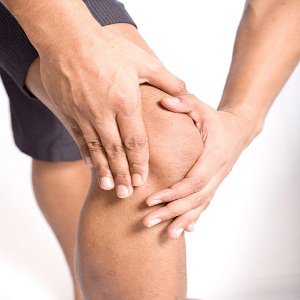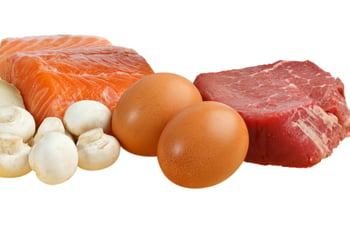 Now the clocks have gone back and the nights are drawing in, it can be hard for us Brits to get enough vitamin D to keep our bodies healthy.
Now the clocks have gone back and the nights are drawing in, it can be hard for us Brits to get enough vitamin D to keep our bodies healthy.
The winter sunlight from November to March isn’t strong enough in the UK for our skin to produce all that we need, and since most of our vitamin D comes from direct exposure to sunlight, unless you’re lucky enough to be jetting off to Lanzarote, it’s especially important to look for your vitamin D from other sources.
Whilst our bodies create and store reserves of vitamin D during the summer months, for those of us who haven’t had the chance to grab enough of the fleeting British summer sunshine, our reserves could be running low.
The NHS recommends short daily periods of sun exposure from April to October as this is generally sufficient for most people to make enough vitamin D to last them throughout the year. But if you cover your skin, are pregnant or lactating, or confined to long periods indoors, you could be in need of an extra boost this winter.
Why Do I Need Vitamin D?
Vitamin D is essential for healthy bones. We all need vitamin D to ensure that our bodies can correctly absorb calcium and phosphorus from our diets, as these minerals are especially important for strong bones.
 A lack of vitamin D, also known as vitamin D deficiency, can cause bones to become soft and weak, and in extreme cases can lead to deformities and osteomalacia in adults, causing bone pain and tenderness.
A lack of vitamin D, also known as vitamin D deficiency, can cause bones to become soft and weak, and in extreme cases can lead to deformities and osteomalacia in adults, causing bone pain and tenderness.
What Are The Signs of Vitamin D Deficiency?
If you are vitamin D deficient, you may experience pain, tenderness or weakness in your muscles, joints or bones. Low levels of vitamin D can also leave you feeling tired and can even lead to depression.
Groups that are particularly susceptible to vitamin D deficiency are pregnant and breastfeeding women, infants under five years old, the over sixty-fives and people who spend a lot of time indoors.
In these cases, their GPs are likely to prescribe vitamin D supplements, as food sources alone may not be enough to give them all the levels they need.
![]() Where Can I Get My Vitamin D In Winter?
Where Can I Get My Vitamin D In Winter?
 While the two main sources of vitamin D are exposure to sunlight and taking nutritional supplements, vitamin D can also be found in some food sources, and the DVCC always recommends following a healthy diet along with your exercise regime.
While the two main sources of vitamin D are exposure to sunlight and taking nutritional supplements, vitamin D can also be found in some food sources, and the DVCC always recommends following a healthy diet along with your exercise regime.
Red meat and oily fish, such as salmon, mackerel and sardines, are rich in vitamin D and eggs can provide an excellent top-up as well, especially from hens fed with vitamin D enriched grains.
Many breakfast cereals today are also increasingly fortified with vitamin D, so it’s important to check the nutritional information on the pack; but as a guide, a bowl of cereal could provide around one fifth of your recommended daily intake (RDI).








